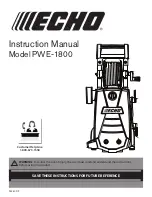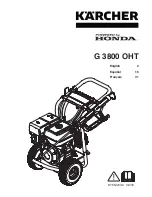
Overview of programmes
en
15
Starching
Note:
Laundry shall not be treated with
fabric softener.
Starching is possible in all wash
programmes if liquid starch is used.
Measure starch into compartment
M
in
accordance with the manufacturer's
instructions (clean first if necessary).
Dyeing/bleaching
Dye should only be used in normal
household quantities. Salt may damage
stainless steel. Always follow the dye
manufacturer's instructions.
Do
not
use the washing machine to
bleach clothes.
Sari
}
Programme suitable for saris made of washable textiles such as cot-
ton and synthetics;
Creasing is reduced.
Note:
Wash a maximum of 2 saris per wash cycle (including blouse
and petticoat). Glued adornments or embroidery may detach and are
not recommended to be washed.
Max. 1 kg
cold -
30
- 40 °C
– – – ...
600
rpm
G
,
F
,
Z
Kidswear
³
Hard-wearing fabrics, heat-resistant fabrics made of cotton or linen
Max. 7 kg/4* kg
cold -
40
°C
– – – ...
1200
** rpm
G
,
Z
Allergy Plus
;
Hard-wearing textiles made of cotton or linen
Note:
Especially suitable for increased hygienic demands or particu-
larly sensitive skin on account of prolonged washing at a defined tem-
perature, with a higher water level and longer rinsing time
Max. 6.5 kg/4* kg
cold -
40
- 60 °C
– – – ...
800
... 1200** rpm
G
,
F
,
Z
Jeans
”
Dark fabrics made of cotton and dark easy-care fabrics
Turn laundry inside-out before washing.
Max. 3 kg
cold -
40
°C
– – – ...
800
... 1200** rpm
G
,
F
,
Z
Sportswear
]
For fabrics made of microfibres for sports and leisure
Notes
■
The laundry must not be treated with fabric softener.
■
Before washing, clean the detergent drawer thoroughly (all com-
partments) to remove fabric softener residue.
Max. 2 kg
cold -
30
- 40 °C
– – – ...
800
rpm
G
,
F
,
Z
Programme/type of laundry/information
Settings/Presettings of the pro-
grammes are highlighted in bold
















































